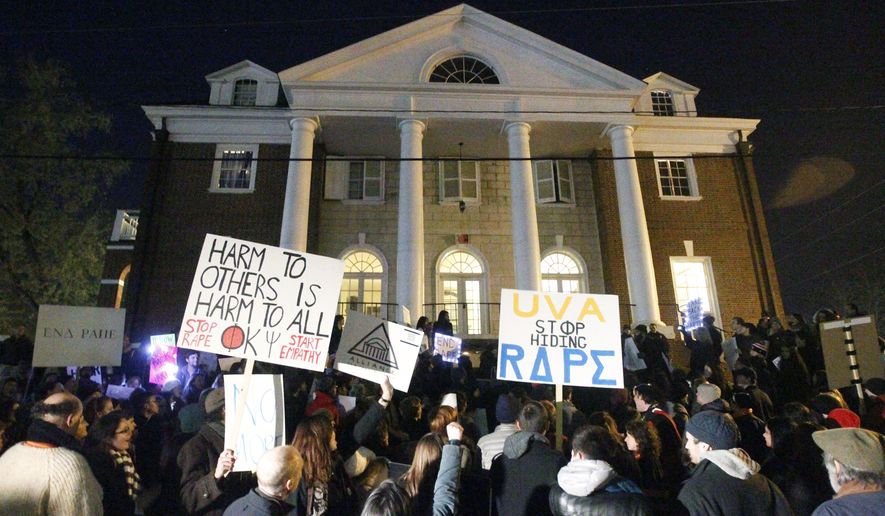Rolling Stone magazine admitted Friday that their trust in the source for an article documenting a brutal gang rape at the University of Virginia was “misplaced,” following widespread speculation about the story’s credibility.
Managing Editor Will Dana apologized in a letter to readers Friday for the “discrepancies” in the accuser’s story.
“In the face of new information, there now appear to be discrepancies in Jackie’s account, and we have come to the conclusion that our trust in her was misplaced,” Mr. Dana wrote.
“We were trying to be sensitive to the unfair shame and humiliation many women feel after a sexual assault and now regret the decision to not contact the alleged assaulters to get their account,” Mr. Dana continued. “We are taking this seriously and apologize to anyone who was affected by the story.”
Last month Rolling Stone published an article by contributing editor Sabrina Rubin Erdely recounting a woman named Jackie’s gang rape at a UVA Phi Kappa Psi fraternity house, the university’s botched response to the alleged assault, and the school’s history of sexual misconduct and cultural indifference to sexual violence.
The article quickly spread on social media and prompted fierce backlash from alumni and students. The Phi Kappa Psi fraternity was vandalized by students after the article was published and the fraternity submitted to a suspension.
SEE ALSO: U.Va. fraternity rebuts Rolling Stone gang-rape article
UVA President Teresa Sullivan called for a full investigation and suspended all social fraternity activity until Jan. 9, and Virginia Gov. Terry McAuliffe said he was “deeply disturbed” by the article.
But recently media outlets have come forward questioning Ms. Erdely’s reporting methods and her decision not to contact the accused rapists.
“Because of the sensitive nature of Jackie’s story, we decided to honor her request not to contact the man she claimed orchestrated the attack on her nor and of the men she claimed participated in the attack for fear of retaliation against her,” Mr. Dana wrote.
Mr. Dana added that in the months leading up to the story’s publication, Jackie gave the editors no reason to question her credibility, but when they reached out to both the local branch and national leadership of the Phi Kappa Psi fraternity, they were met with skepticism.
“They responded that they couldn’t confirm or deny her story but had concerns about the evidence,” Mr. Dana wrote.
• Kellan Howell can be reached at khowell@washingtontimes.com.




Please read our comment policy before commenting.